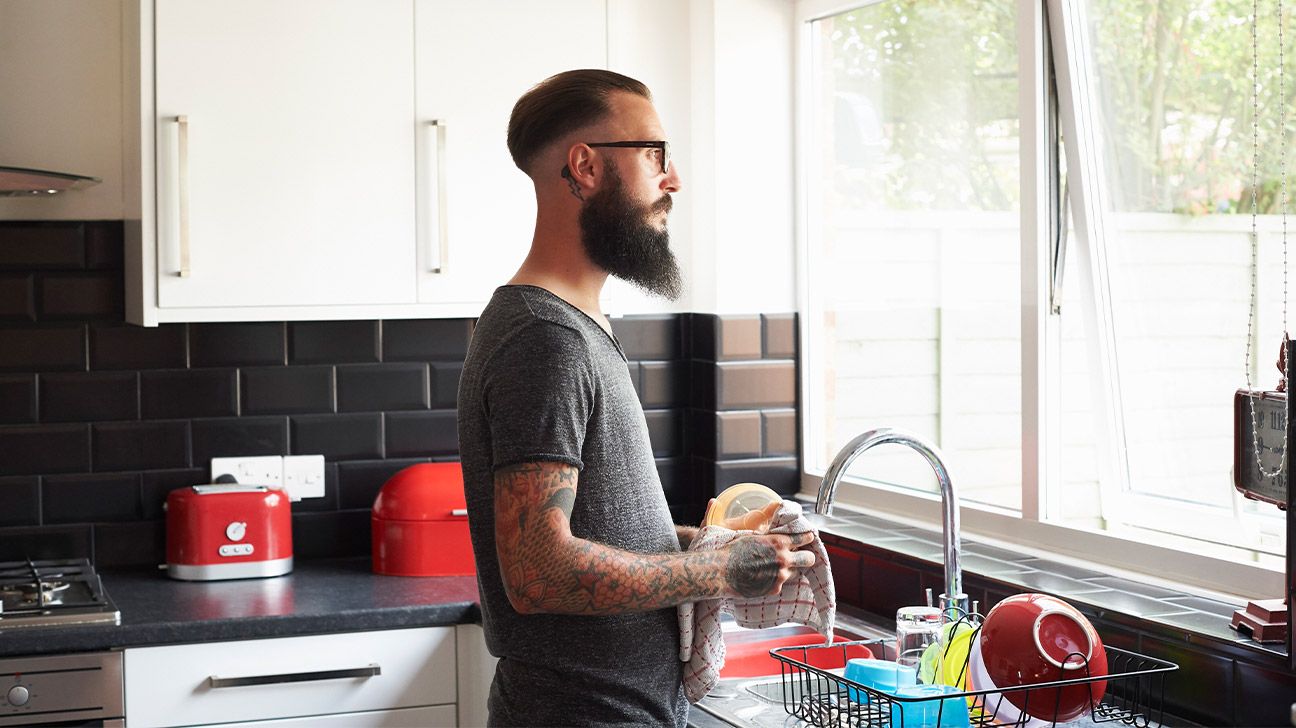Are Stress and Routine Changes Aggravating Your IBD Symptoms? Here’s How to Deal
June 12, 2020
Content created for the Bezzy community and sponsored by our partners. Learn More

It can be tricky to create and stick to a new routine, but there are ways to lower stress and create a sense of calm, inside and out.
Those of us living with inflammatory bowel disease (IBD) understand the effect that stress has on symptoms — and it’s not pretty.
Stress can spark abdominal pain and bowel urgency, and can even contribute to intestinal inflammation.
Clearly, it’s important to deal with stress well if we want to successfully manage our symptoms.
One effective way to manage stress is by creating routines. After all, there’s comfort within the repetition of the routines we create for ourselves.
But what can you do if your day-to-day schedule that had helped you manage your IBD symptoms has been turned upside down?
You might not be going to your job at its physical location or even doing the same tasks right now, but a temporary routine will give your day structure and purpose.
It can be tricky to create and stick to a new routine, but there are ways to lower stress and create a sense of calm, inside and out.


Establish your big 3 must-dos
Whether you have a busy day of work calls or housecleaning, make an old-fashioned list of what you need to accomplish. By putting these tasks on paper, you can free up more mental space for other things.
Instead of writing down everything you could possibly get done that day, write out three must-do tasks that are most important.
Sometimes having too many things to do is paralyzing, and we end up doing nothing at all. Choosing the most important tasks that need to be done for the day is more manageable. Once those are done, everything after that is a bonus!
Creating this list the night before can add comfort if nighttime anxiety creeps in.
Include activities that make you happy
Self-care is nourishment for the mind, just like food is nourishment for the body.
Think about what makes you happy and feel good, and then do those things. This is especially important during a time when emotions and stressors run high.
Some examples of happy activities could be:
- starting the day with warm lemon water
- taking a walk in your neighborhood
- calling your grandmother to check in
- following a 10-minute meditation each morning
- reading before bed
- dancing in your room
- taking a midday yoga break
- coloring in a coloring book
Remember that the mind and body are connected, so it’s crucial to care for your mental well-being as well as your physical to keep IBD symptoms away.
I recommend writing down what makes you happy and including at least one of these feel-good activities on your to-do list every day.
Practice coping strategies when you feel out of control
Things are happening in the world that might make you feel out of control. Although it’s natural to feel that way, it can be overwhelming.
Have go-to strategies to pull from your back pocket when stress is too much.
Breathe
From pursed lip breathing to lion’s breath, there are many breathing techniques to try.
Breathing is a free, effective way to put yourself into a relaxed state. Try out different breathing techniques to see what feels right to you.
Try meditation
Take the intimidation out of meditation by downloading one of the many meditation apps onto your smartphone. Meditations range from a few minutes to hours long, so you can try ones that fit your lifestyle.
Journal it out
Don’t underestimate the power of putting your emotions on paper. Try the following journal prompt when you’re feeling out of control:
- What’s stressing me out?
- Why is it bothering me?
- Is there anything I can do to make the situation better?
- If not, how can I feel better about it for now?
Go outside for a walk
Fresh air and movement mentally and physically “clears” your head!
Give yourself grace and patience
Stress will come and go, and that’s OK. No one expects you to be perfect all the time, so don’t hold yourself to that standard either. Acknowledge that your feelings are valid, and then use one of your go-to strategies.
Remember that there’s not one right way to build a routine or manage stress. If something doesn’t work for you, it’s not a failure; it’s just a sign to try something else.
Article originally appeared on June 12, 2020 on Bezzy’s sister site, Healthline. Last medically reviewed on June 10, 2020.
Medically reviewed on June 12, 2020


Like the story? React, bookmark, or share below:
Have thoughts or suggestions about this article? Email us at article-feedback@bezzy.com.
About the author